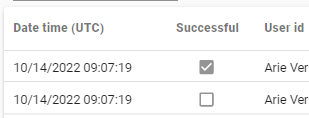The support for integrating Open ID providers with the Thinkwise Platform is great, but also a very common functionality in modern applications. With support for the Microsoft Common tenant around the corner, another important improvement is delivered on the topic of Single Sign-On capabilities.
As already referred to by Vincent in this blog from almost 1,5 years ago, the next step is User Provisioning (sometimes called Application Provisioning or Identity Provisioning). That feature helps streamline and automate the creation of new users within an organization, including a pre-defined set of Roles & Rights.
For the Thinkwise Platform User Provisioning would entail both the creation of a User and the assigning of applicable User Groups.
Not a new Idea, since it's already on the Indicium backlog, but by raising it as Idea and putting it up for a vote I hope we'll manage to move it higher up the agenda!











